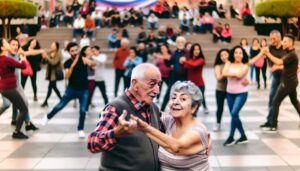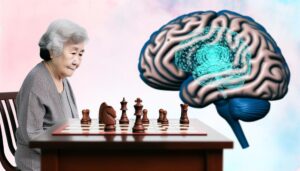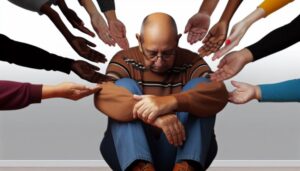Imagine you’re watching a favorite movie of yours from the ’70s, only to realize you can’t recall the lead actor’s name — a clear sign of aging’s impact on memory. It’s a common scenario; as you grow older, you’ll likely face various declines in physical and cognitive abilities. But what if there are ways to slow this decline, or at least manage it more effectively? Stick around as we explore the various strategies and resources available to you. It may just change how you approach your golden years.
Table of Contents
ToggleUnderstanding the Aging Process
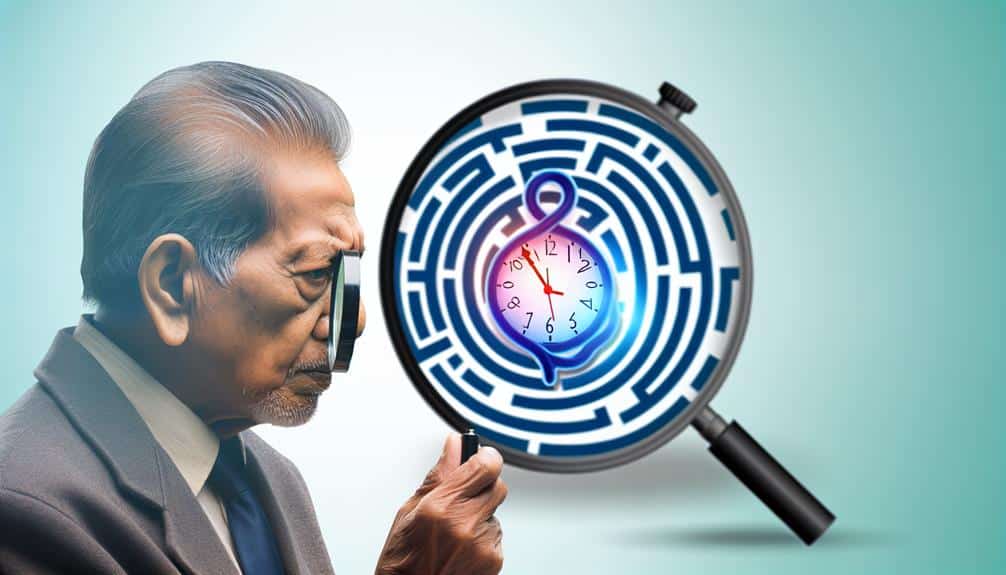
Often, the process of aging can feel like unexplored territory. It’s a journey that everyone must take, but one that can be challenging to navigate.
The normal aging process is an inevitable part of life, filled with biological changes that can feel overwhelming and sometimes even a little frightening.
Understanding these changes can empower you to better serve others who are exploring this journey. Aging isn’t just about getting older; it’s a complex interaction of genetics, lifestyle, and environment. Biological changes such as cell deterioration and decline in bodily functions are normal. They’re not flaws or failures; they’re a natural part of the journey.
You might notice that those you’re caring for become more susceptible to illness, or that their cognitive abilities aren’t as sharp as they once were. This is simply their bodies adapting to the aging process. It doesn’t mean they’re less capable or less valuable; it just means they need a different kind of care.
Physical Changes and Aging
Exploring the terrain of physical changes that come with aging can feel like a daunting task. Yet, it’s important to understand these transformations so you can best serve your aging loved ones or clients.
You’ll find that aging often brings mobility challenges. As people age, they might face difficulties with balance and coordination, often resulting in falls or injuries. They may also struggle with endurance, making even short walks a strenuous task. It’s essential to recognize these changes and provide necessary support—like tailored exercise programs or mobility aids—to maintain their independence and safety.
Additionally, aging can lead to sensory impairments. Deterioration of vision and hearing is common, which can greatly impact communication and daily life. It’s not just about needing glasses or hearing aids; it’s about adapting environments to accommodate these changes. Ensuring homes are well lit or using assistive listening devices can make a world of difference.
Cognitive Decline: What to Expect
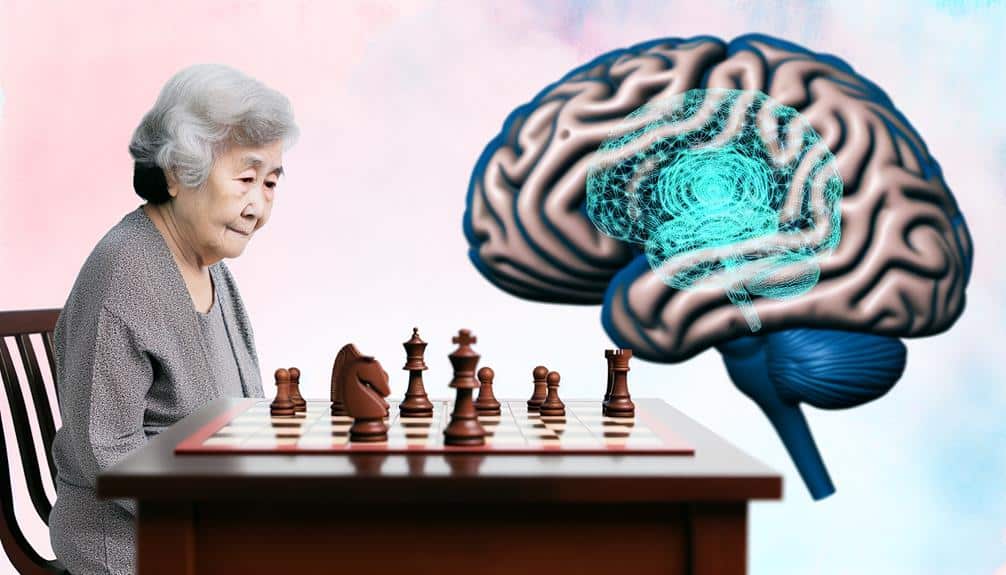
Traversing the maze of cognitive decline can be a challenge. It’s a process that often sneaks up, starting with forgetfulness that you might dismiss as normal aging. But when memory loss becomes more frequent, it’s time to pay attention. It’s not uncommon for cognitive impairment to touch our lives as we age, but understanding what to expect can help you navigate these changes with grace and resilience.
The first thing you’ll notice is a change in memory. You might forget names, dates, or why you walked into a room. This can be frustrating, but don’t panic. It’s a typical part of cognitive decline.
Over time, you might also struggle with complex tasks. Balancing a checkbook or planning a dinner party could become more difficult.
With cognitive impairment, you might also notice changes in your decision-making ability. Simple choices may take longer, and you could find yourself struggling with decisions that used to come easily. This is a normal part of the aging process.
Emotional Impact of Aging
Aging’s emotional toll can be just as challenging as its physical counterparts. You may feel a sense of loss as you confront the changes aging brings. It’s natural, but it doesn’t mean you’re powerless. Mental resilience plays a vital role here. It’s your capacity to bounce back from life’s setbacks, including those associated with aging. Your resilience can bolster your emotional well-being, helping you confront the challenges of aging with grace and wisdom.
Maintaining social connections is another key aspect in maneuvering the emotional landscape of aging. Staying connected to loved ones and community can provide a sense of belonging and purpose. These connections can offer emotional support and can even boost your health. Isolation can have a negative impact, so fostering relationships and engaging in social activities is crucial.
We’re here to support you through this journey. Aging isn’t easy, but with the right mindset, a supportive network, and a resilient spirit, you can navigate its emotional terrain successfully Remember: it’s never about age; it’s about how you age! Your feelings matter and remember that you’re not alone on this journey.
Strategies to Cope With Physical Changes
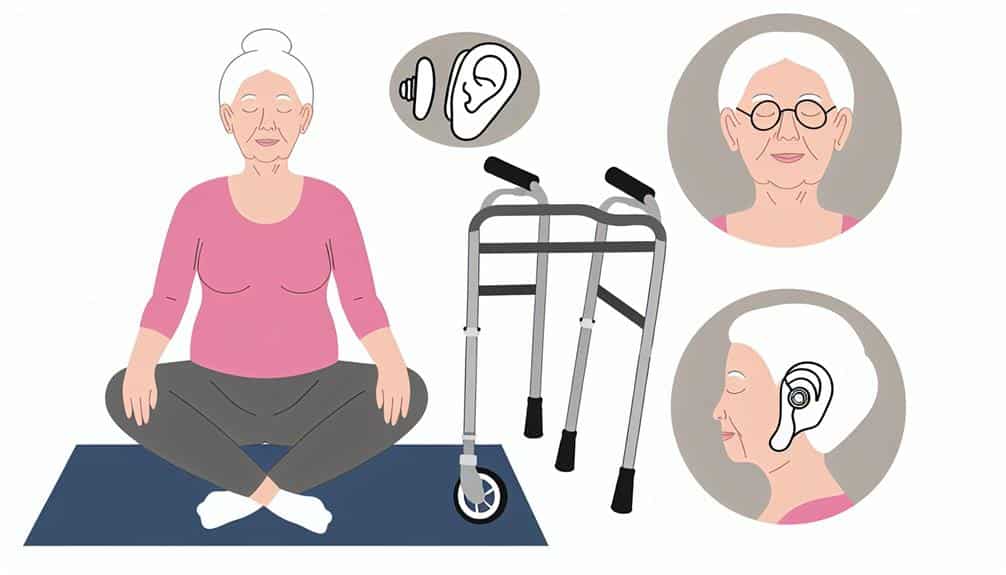
As we navigate the emotional aspects of aging, addressing the physical changes that come with this stage of life is equally important. You might notice a decrease in muscle strength or flexibility. It’s natural and part of the aging process, but there are strategies to cope with such changes.
Firstly, maintaining an active lifestyle is essential. Regular exercise can help preserve muscle strength and improve your flexibility. You don’t have to run a marathon, but a consistent routine of low-impact activities, like swimming or walking, can make a significant difference.
Secondly, consider adopting certain adaptation techniques. These can range from using assistive devices like walking sticks to modifying your living environment for easier navigation. You might also explore physical therapy options which can provide targeted exercises to cope with specific physical limitations.
Lastly, good nutrition plays a crucial role in maintaining physical health. It’s vital to eat a balanced diet rich in protein to support muscle maintenance and strength.
Enhancing Cognitive Function in Aging
Think of your brain as a muscle that also needs regular exercise to stay fit. Just as you might lift weights or jog to keep your physical body in shape, brain training exercises can help keep your mind sharp as you age.
Brain training involves activities designed to improve cognitive functions such as memory, attention and problem-solving skills. These can range from puzzles and games to more structured programs developed by neuroscientists.
Memory exercises—a type of brain training—are particularly beneficial for older adults. They can help you recall names, dates and details more easily enhancing your daily life and interactions.
But remember, like any exercise regimen, consistency is key. It’s not about being perfect; it’s about making a commitment to your cognitive health.
Try to incorporate brain training and memory exercises into your daily routine. This could be as simple as doing a crossword puzzle with your morning coffee or using an app for a few minutes each day.
Nurturing Emotional Health Amid Aging

While keeping your cognitive functions sharp is certainly vital, it’s equally essential to nourish your emotional health as you age. Aging brings about changes not only in your physical capabilities but also in your emotional resilience. The good news is that you’re not helpless in this journey. There are self-care techniques you can embrace to foster emotional well-being.
Consider these steps to nurture your emotional health:
- Practice mindfulness: This involves being present in the moment—a simple yet powerful tool for emotional stability.
- Stay connected: Don’t isolate yourself. Regular social interaction can greatly boost your mood.
- Maintain a healthy lifestyle: Regular exercise and a balanced diet can do wonders for both mood and overall emotional health.
- Seek professional help: If you’re feeling overwhelmed, it’s okay to seek help from a mental health professional.
Caregiving for Aging Loved Ones
Guiding loved ones through their golden years can be a challenging journey filled with uncertainty and change. While the road may be tough, don’t forget that caregiver support is available and essential for maintaining your own health and well-being.
Open communication is also key in this caregiving journey. It’s important to understand your loved one’s needs, fears, and hopes. Regularly discuss their comfort levels, day-to-day experiences, and any symptoms or changes they’re experiencing. Remember: you’re not just a caregiver; you’re a trusted advocate.
As you navigate this path together, these communication tips may prove beneficial: always be patient and listen—conversations may take longer but each word is valuable in understanding their perspective. Be clear and concise, simplifying complex topics when needed. Lastly, involve them in decision-making as much as possible—this can empower your loved one while respecting their autonomy.
Embrace this journey with love and patience knowing that every step you take is creating a safe comfortable environment for your loved one. Caregiving isn’t just about prolonging life; it’s about enriching it making every moment count! And remember: you’re not alone—reach out for caregiver support when needed—it’s okay to ask for help!
Aging Gracefully: Lifestyle Changes
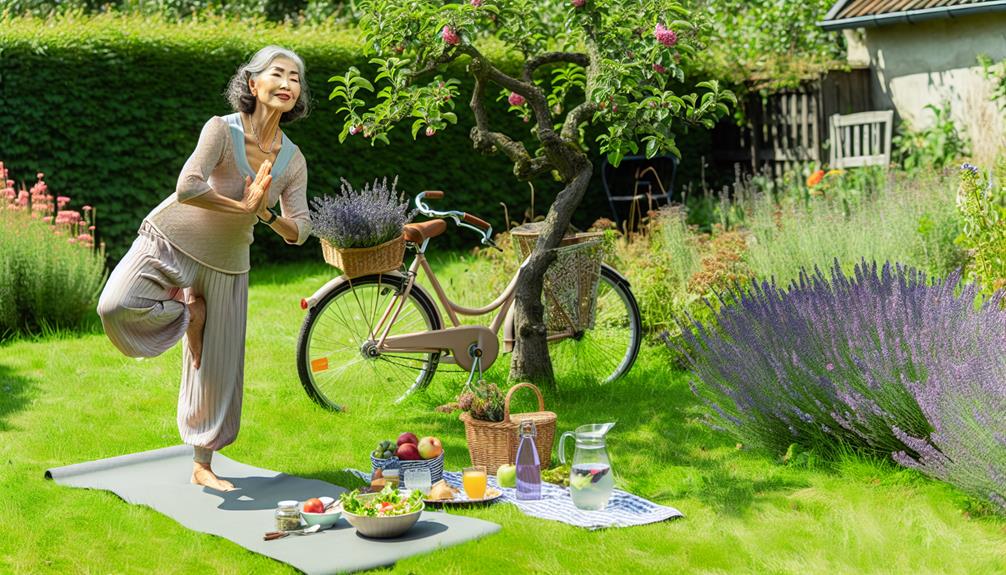
In the journey of aging adapting to lifestyle changes plays a significant role in enhancing quality of life and aging gracefully. It’s about embracing the changes not fearing them! You can empower yourself by cultivating healthy habits practicing self-care techniques that promote well-being longevity.
You’ll notice that certain shifts are necessary. Here are some changes to keep in mind:
- Healthy eating: Nourish your body with balanced meals. Nutrient-dense foods help maintain peak health.
- Exercise: Stay active. It’s not just about physical health but also mental sharpness.
- Rest: A good night’s sleep is crucial—it rejuvenates, repairs and revitalizes.
- Social connections: Maintain strong bonds—they provide emotional support and can boost your mood.
Conclusion
As you navigate the winding journey of aging remember: it’s not a decline but a new chapter filled with wisdom! Even as physical strength wanes, your heart’s courage grows. Cognitive changes? They merely highlight the importance of treasured memories! Yes, emotional shifts can be tough but they’re also proof of your resilience! Embrace the support of caregivers therapists lean into adaptive tools modifications. Aging is a beautiful complex process—let’s journey through it with grace strength!

